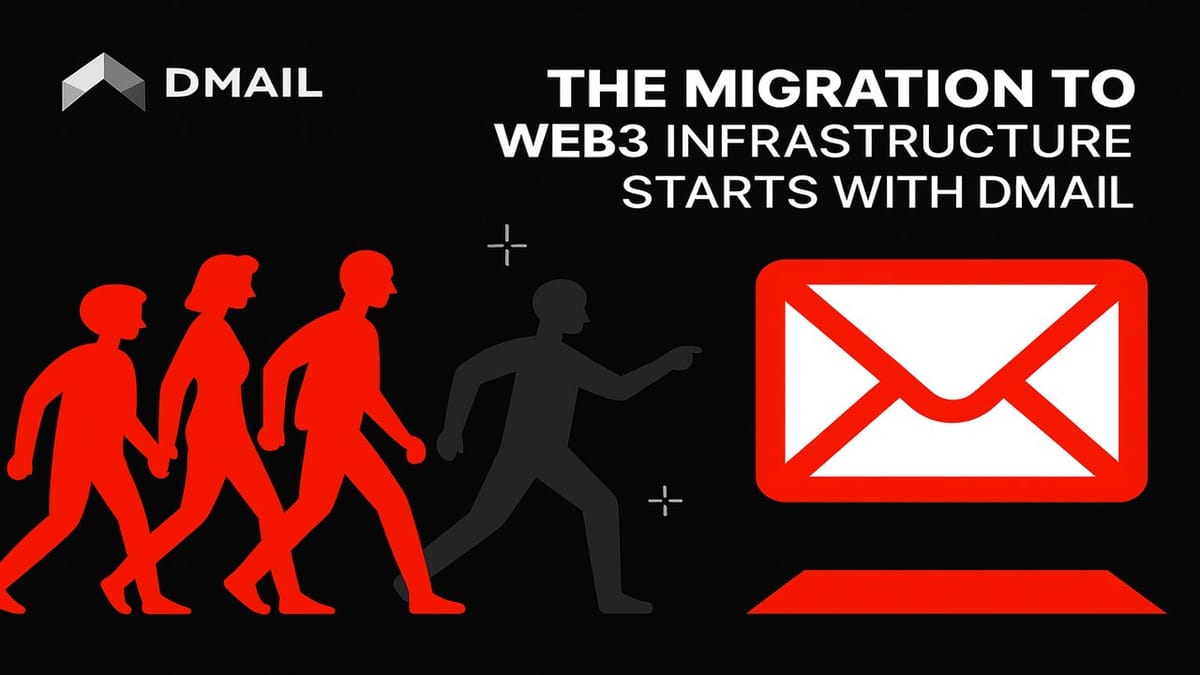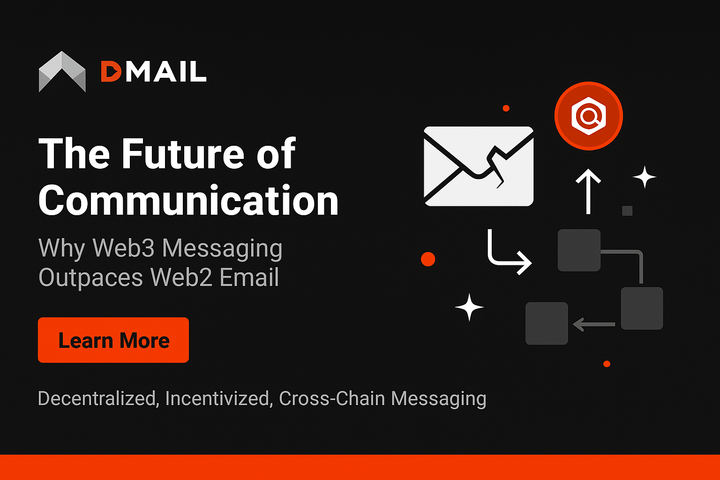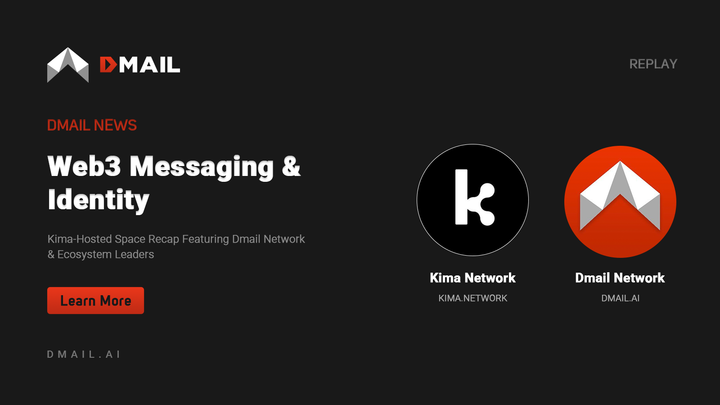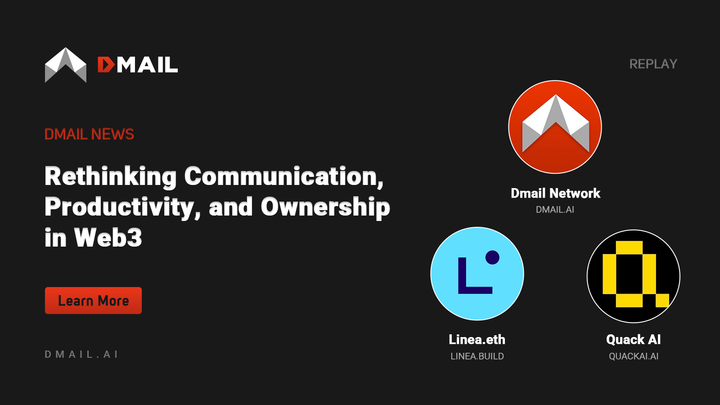Email Is Broken: Why Centralized Giants Like Gmail and ProtonMail Can’t Fix It
Millions are waking up to the reality that Gmail and ProtonMail can’t solve email’s foundational flaws. Privacy is eroding. Security breaches continue. Centralization keeps users disempowered.

For decades, email has been the backbone of digital communication. Gmail alone boasts over 1.8 billion users worldwide. ProtonMail has earned a reputation as the “privacy-first” alternative. Yet despite their scale and promises, the cracks are impossible to ignore. Centralized email is fundamentally broken — and it cannot be patched. It needs to be rebuilt.
That’s where DMAIL comes in. Built on Web3 infrastructure, DMAIL isn’t just another inbox; it’s a complete reinvention of what email should be in the age of decentralization.
The Illusion of Control
Gmail positions itself as free, fast, and secure. But the real cost is hidden. You’re not the customer — you’re the product. Google makes billions by monetizing inboxes through ads, profiling, and targeted data mining. Users pay with their privacy, not their wallets.
ProtonMail is often held up as the answer, but it’s still a centralized entity. Servers sit under Swiss jurisdiction, which means your security is ultimately dependent on shifting political and legal landscapes. Subject lines aren’t encrypted, metadata leaks are possible, and users remain tied to one company’s infrastructure.
Both options keep you dependent on trust — trust in corporate motives, trust in government protections, trust that their black-box security actually works. History tells us that trust is fragile.
The Limits of Centralized Security
Phishing attacks continue to cost billions each year. Even with AI filters, Gmail regularly issues warnings about new exploits. ProtonMail encrypts message content but leaves structural metadata exposed. Both providers, by design, maintain central databases that remain lucrative targets for attackers.
Centralization breeds vulnerability. A single weak link, whether through a data breach, insider access, or government mandate, can expose millions of users. In an age where digital identity is as valuable as money, relying on centralized custodians is reckless.
Why Web2 Email Can’t Evolve
The failure isn’t in the technology alone — it’s in the incentives. Gmail is built to serve advertisers. ProtonMail is built to maintain a central service model that can never be jurisdiction-free. Neither can fully escape the structures of Web2.
Web2 email will always treat the user as a tenant, not an owner. You rent access to your account. You play by their rules. And if they decide to suspend, censor, or restrict your inbox, you have no recourse.
That’s not a communications system — that’s dependency.
The Web3 Alternative: DMAIL
DMAIL replaces dependency with sovereignty.
- On-chain identity: Your wallet is your login. No company can revoke it. No government can force its suspension.
- End-to-end encrypted, metadata-protected: Not just your messages, but subject lines and transaction-level data are secured by design.
- Censorship-resistant: No centralized server means no one can block, delete, or surveil your communications.
- User-owned economy: Through Mail-to-Earn mechanics, engagement is rewarded. Communication becomes participatory, not exploitative.
- Interoperable by default: Cross-chain messaging, NFT domain integration, and DeFi-ready identity make DMAIL more than an inbox — it’s the hub for the Web3 ecosystem.
DMAIL doesn’t patch the old system. It rebuilds it from first principles: transparency, sovereignty, and user control.
The Migration Is Already Underway
Millions are waking up to the reality that Gmail and ProtonMail can’t solve email’s foundational flaws. Privacy is eroding. Security breaches continue. Centralization keeps users disempowered.
Web3 communications are not a niche experiment anymore. With over 2 million monthly active users, DMAIL is proof that the migration has started. Those who shift now aren’t just protecting their privacy — they’re positioning themselves at the center of the next era of digital communication.
The Future Belongs to Owners, Not Tenants
Email was never meant to be an advertising platform. It was never meant to be a surveillance tool. It was meant to be communication — private, reliable, and user-driven. Web2 broke that promise. Web3 restores it.
Gmail and ProtonMail can’t fix email. DMAIL can. And if you care about owning your communications, your identity, and your future, the time to migrate is now.

Connect with Dmail: Website | Twitter | Discord | Github | Telegram





Comments ()